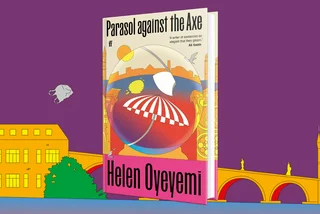And I said, ‘Yeah.’ And the next question was, actually, ‘do you think this has a corrosive effect?’ By being very good at pointing the finger, at mocking, that’s what we’re good at, that’s our role, and politicians aren’t necessarily the best people at dealing with that. We deal with words and satire and funny humour, they’re having to try to run a country and we’re just poking the finger, and maybe collectively it has a corrosive effect on people’s confidence. And it made me think, God, yeah, actually… and then I just think, ‘so what’ (laughs).


